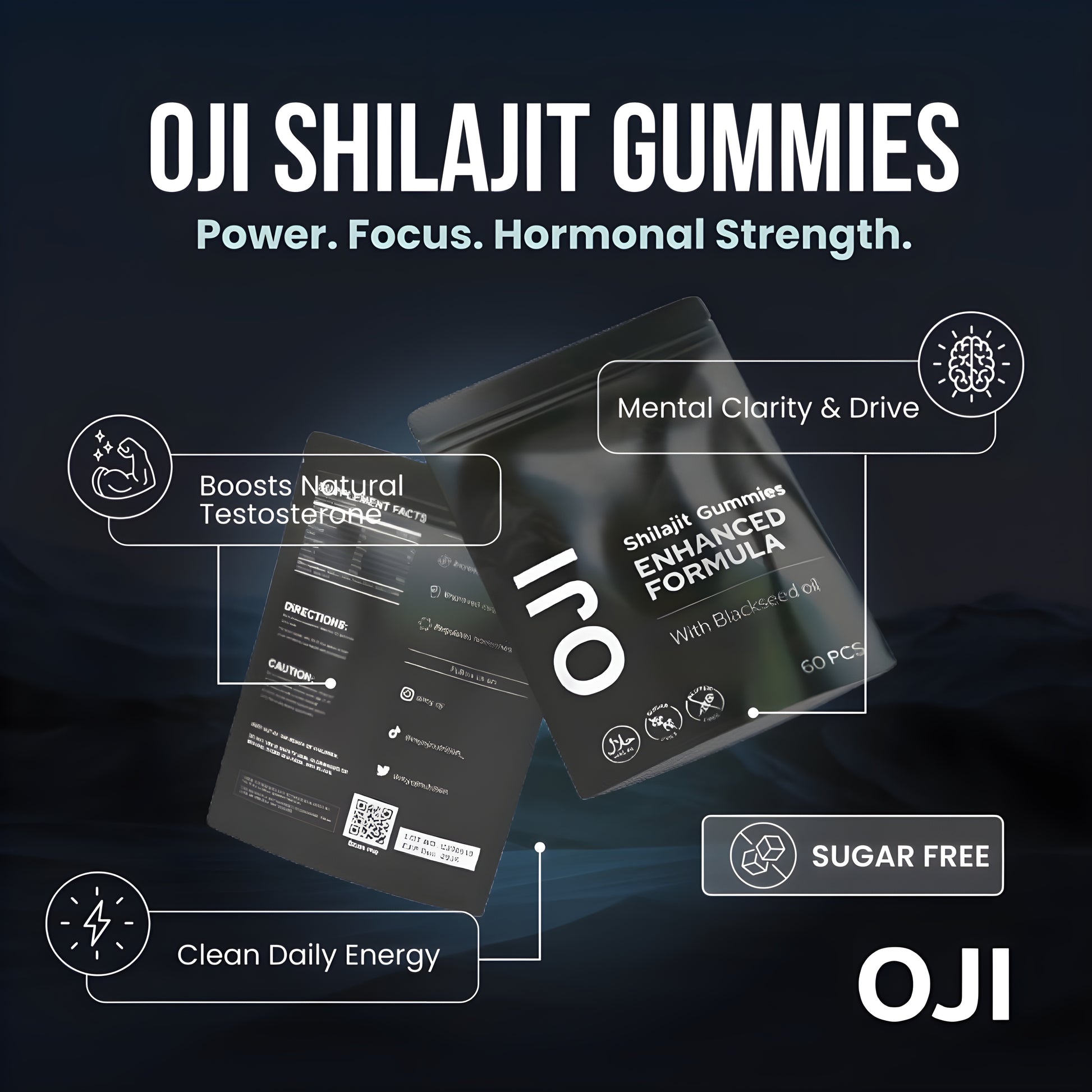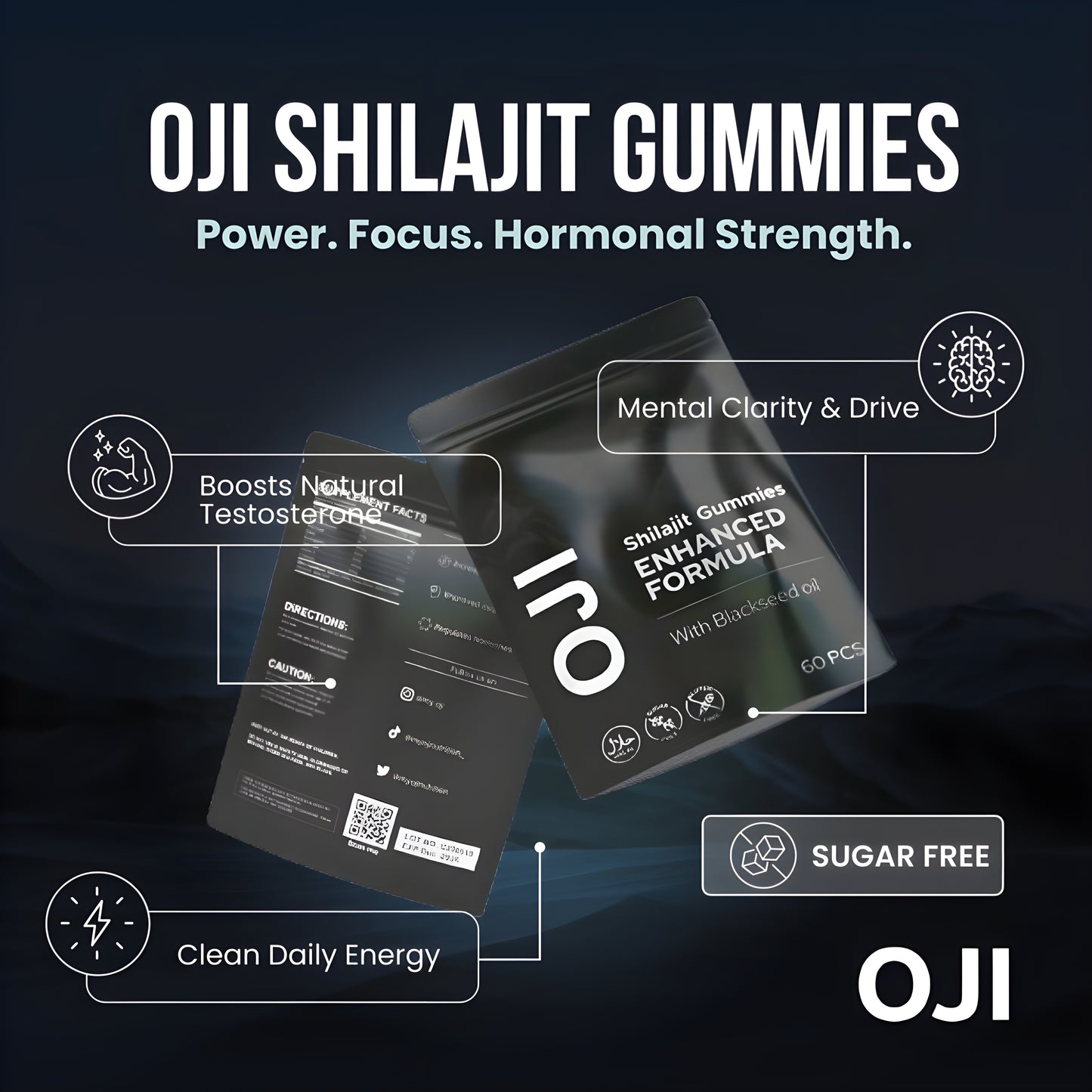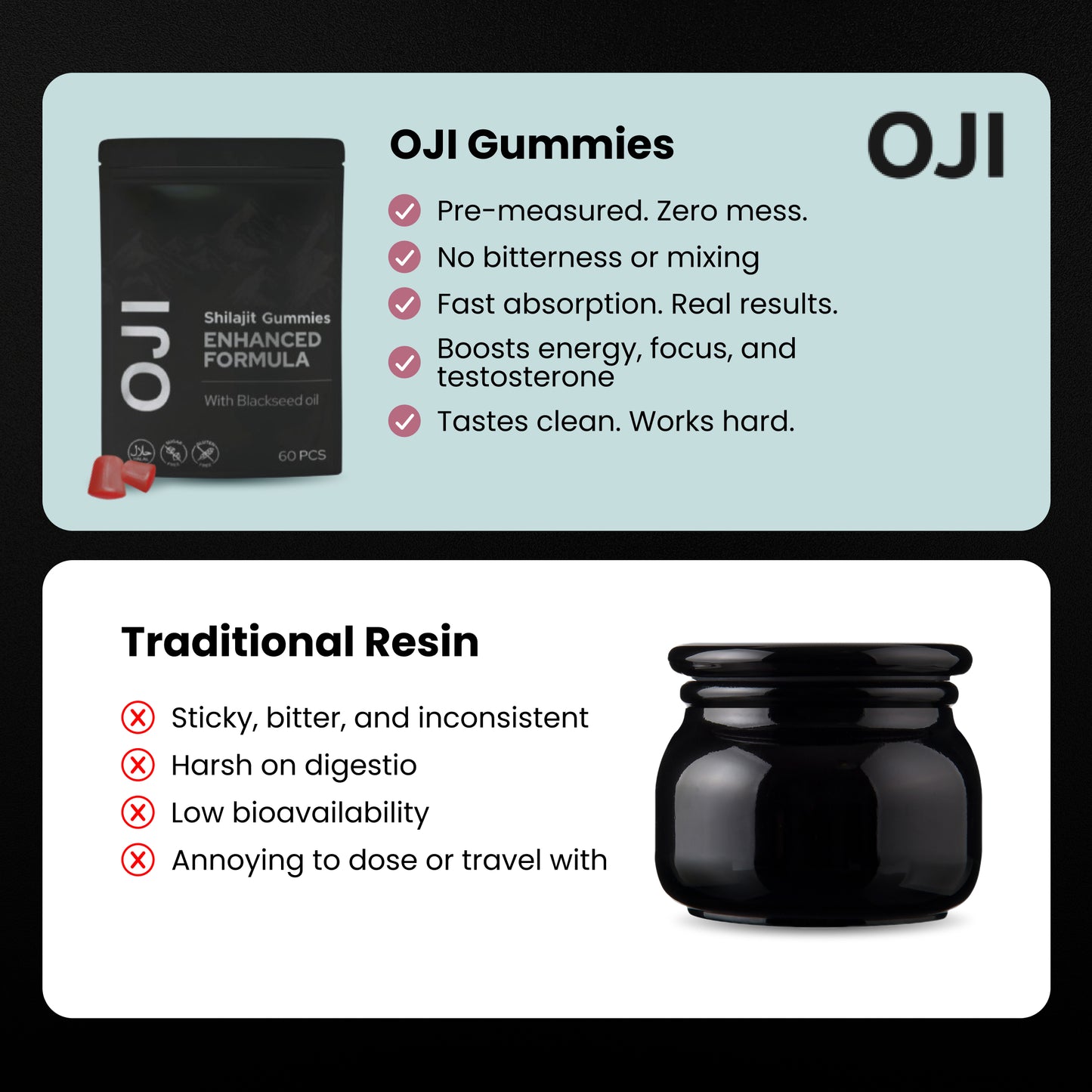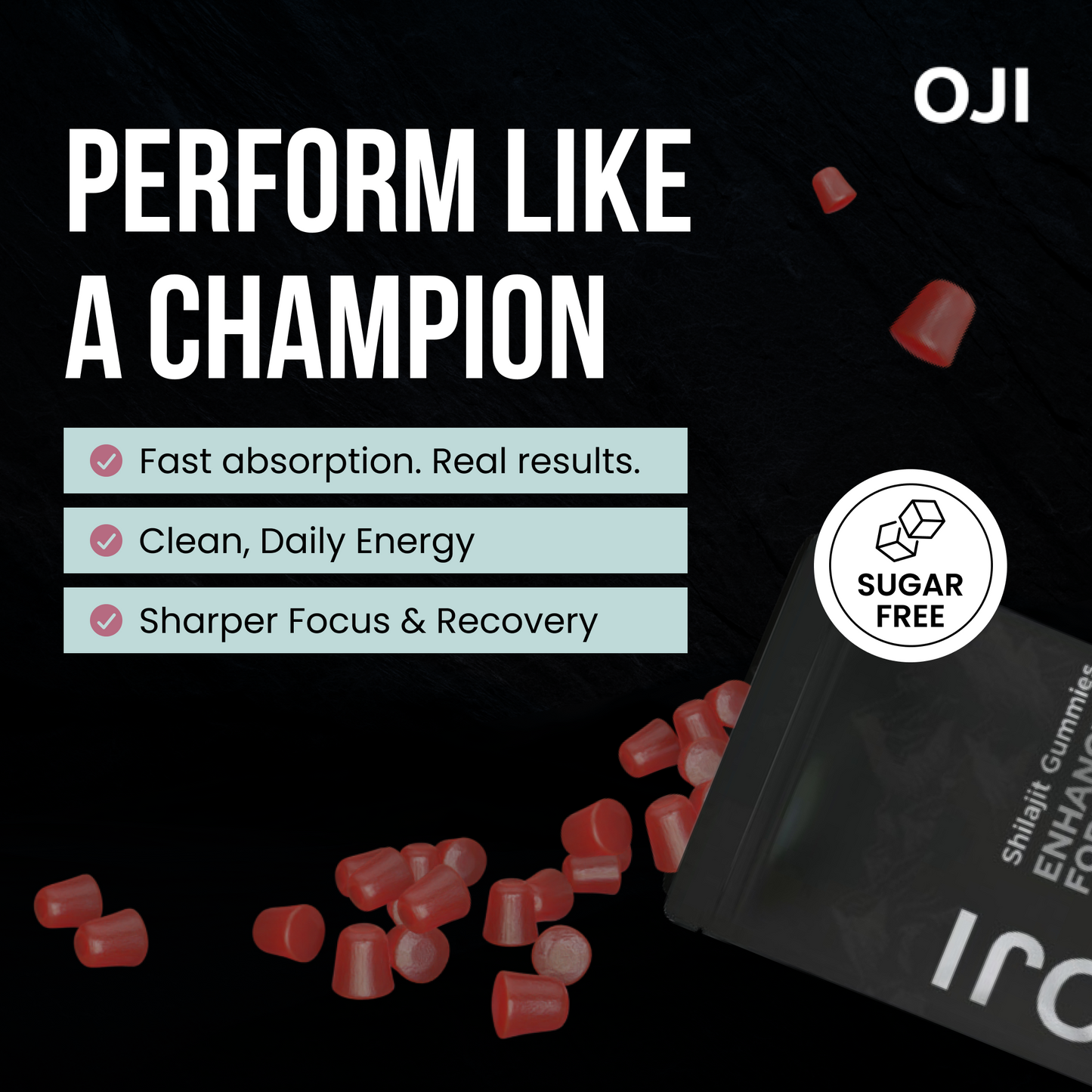When it comes to vitamins for female hormone balance, a few key players—like vitamin D, the B vitamins (especially B6), and magnesium—are absolute essentials. Think of them as the foundational building blocks your body uses for hormone production and regulation. These nutrients are involved in everything from keeping your mood stable to supporting your reproductive health, helping your body find and maintain its natural rhythm.
Understanding Your Hormonal Symphony
Picture your hormones as a finely tuned orchestra. You’ve got key players like oestrogen, progesterone, and testosterone, all working together in perfect harmony. Each one has a specific part to play, conducting everything from your energy levels and mood to your metabolism and menstrual cycle. But if one of these "instruments" goes out of tune, the whole performance can feel off.
This kind of imbalance can show up in all sorts of ways, often creating noticeable symptoms that get in the way of daily life. Maybe you’re dealing with a deep fatigue that sleep just can't seem to fix, or unpredictable mood swings that come out of nowhere. Irregular cycles that make planning impossible are another common sign. These are all signals from your body that its hormonal symphony needs a bit of support.
The Foundational Role of Nutrients
The good news is that you have an incredibly powerful toolkit right at your fingertips: nutrition. Certain vitamins and minerals are the crucial "notes" your body needs to create that hormonal harmony. They aren’t just passive ingredients; they are active participants in the complex processes of creating hormones, signalling between cells, and clearing out old hormones.
For instance, some nutrients are non-negotiable for producing hormones in the first place. Others help the liver efficiently detoxify hormones that have already done their job, preventing a build-up that can lead to problems down the line. Building a strong nutritional foundation is one of the most effective things you can do to support your body's natural processes. If you're looking for a great place to start, our guide on how to balance hormones naturally offers a fantastic overview.
Why Hormonal Balance Matters
Getting your hormones in balance is about so much more than just getting rid of frustrating symptoms. It’s about creating long-term wellness and vitality. A well-regulated endocrine system helps you achieve:
- Stable Energy Levels: No more dramatic peaks and crashes that throw off your day.
- A Consistent Mood: Feel more emotionally resilient and less prone to irritability.
- Healthy Reproductive Function: Support regular cycles and overall fertility.
- Better Sleep Quality: Get the deep, restorative rest your body truly needs.
Hormones are your body’s chemical messengers, guiding your energy, mood, metabolism, and reproductive health. When they’re out of balance, it can feel like your whole system is out of sync, affecting nearly every part of your well-being.
This guide is here to demystify this complex system and give you clear, practical steps you can take. We'll explore how targeted nutrition provides the essential support for everything from your energy levels to your reproductive health. For a deeper look into the role of one specific hormone, this comprehensive guide to progesterone for fertility success is a fantastic resource. By understanding how these micronutrients work, you can begin to restore your inner harmony and feel your absolute best.
The Core Vitamins for Hormonal Harmony
To get your hormones back on track, start with a solid nutritional foundation. Think of certain vitamins as the essential workers inside your body, managing everything from how your hormones are made to how they’re cleared out afterwards. They’re less like simple ingredients and more like highly skilled technicians, each with a specialised job to keep your body's communication network running like a dream.
This visual shows the delicate dance between your key hormones—oestrogen, progesterone, and testosterone—and the beautiful harmony they create when they're all in balance.
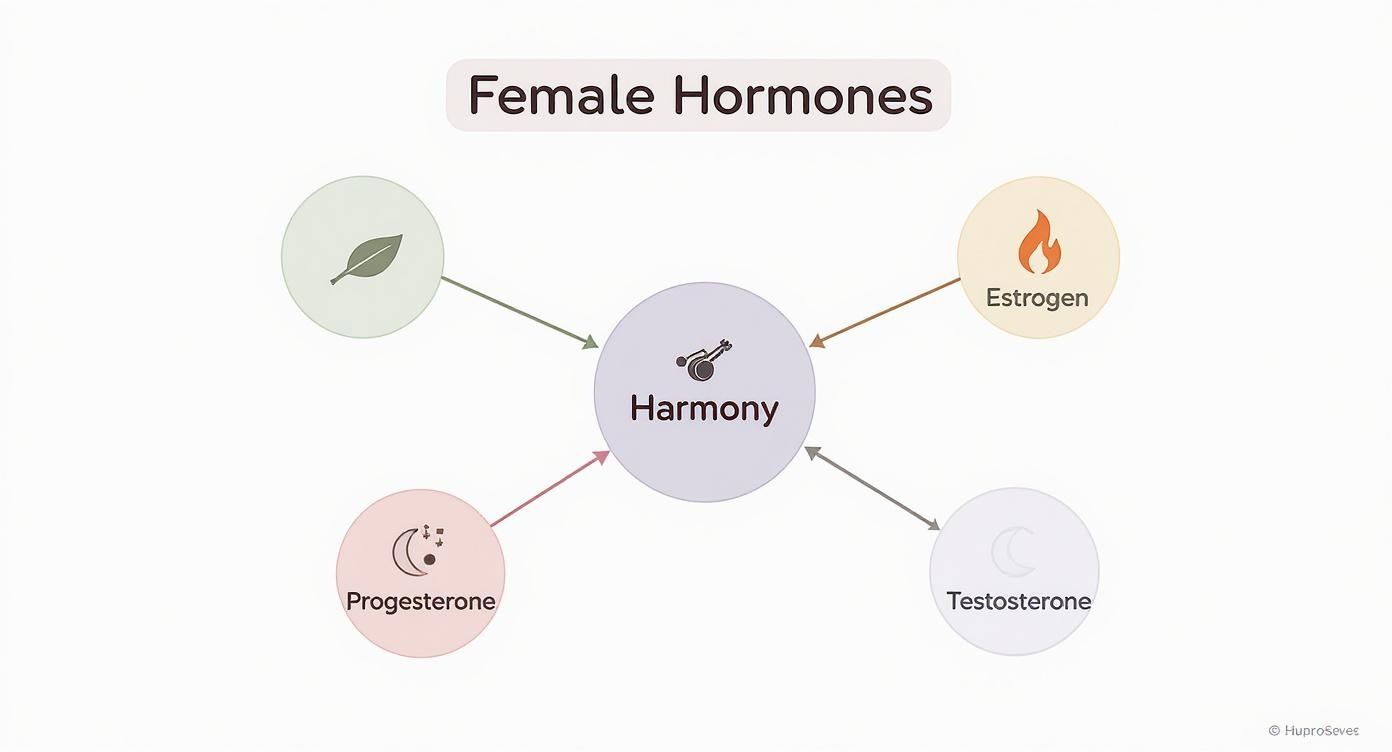
As you can see, true hormonal wellness isn't about any single hormone. It's about the symphony they conduct together, which is exactly why getting the right nutritional support is so crucial.
To help you get started, here's a quick look at the most important vitamins for hormonal health and where you can find them in everyday foods here in the UK.
Key Vitamins and Their Role in Hormone Balance
| Vitamin | Primary Hormonal Role | Top UK Food Sources |
|---|---|---|
| Vitamin D | Acts like a hormone itself, regulating oestrogen and progesterone production. | Salmon, mackerel, eggs, fortified cereals, and mushrooms. |
| B Vitamins | Essential for liver detoxification to clear out used hormones and reduce build-up. | Lean meats, poultry, eggs, legumes, and dark leafy greens like kale. |
| Vitamin A | Supports thyroid function and healthy ovarian cell communication. | Liver, full-fat dairy, eggs, sweet potatoes, and carrots. |
| Vitamin E | A powerful antioxidant that protects cells and eases PMS symptoms. | Sunflower seeds, almonds, avocados, and spinach. |
Getting these nutrients from your diet is always the best first step. Let's dig a little deeper into what each one does.
Vitamin D: The Sunshine Hormone
Vitamin D acts much like a hormone itself, directly influencing the endocrine system and helping to synthesise and manage oestrogen and progesterone. To boost your levels, get sensible sun exposure when possible and incorporate Vitamin D-rich foods into your diet.
A deficiency in Vitamin D is common in the UK, with up to 33% of women affected, a figure that increases in winter. Being low can disrupt your entire system. You can read more about the crucial role of fat-soluble vitamins on Cytoplan.co.uk.
Actionable Steps:
- Aim for 15-20 minutes of midday sun exposure on your arms and legs a few times a week during sunnier months.
- Add fatty fish like salmon or mackerel to your meals twice a week.
- Include egg yolks and fortified foods like certain cereals and plant milks in your regular diet.
- Consider a supplement during the autumn and winter months, as recommended by UK health guidelines.
The B Vitamin Family: The Detox Crew
The B vitamins—especially B6, B12, and folate—are your liver’s best friends. Your liver is ground zero for processing hormones after they’ve done their job. If it can’t clear them out properly, they can end up recirculating and causing imbalances, leading to symptoms like PMS and irritability.
Think of B vitamins as the diligent clean-up crew for your hormonal system. They make sure that once a hormone has delivered its message, it's properly broken down and removed, preventing a build-up of hormonal 'clutter'.
Vitamin B6 is particularly brilliant for producing progesterone and helping to create mood-boosting neurotransmitters like serotonin.
Actionable Steps:
- Make dark leafy greens like spinach and kale a staple in your daily salads or smoothies.
- Incorporate lean protein sources such as chicken, turkey, or legumes (like lentils and chickpeas) into your main meals.
- Add eggs to your breakfast routine a few times a week.
Vitamin A: The Communication Specialist
Vitamin A is vital for the health of your endocrine glands, including the thyroid and ovaries, and for making sure your cells can talk to each other properly. It helps your body use thyroid hormone—the master controller of your metabolism—which in turn has a massive impact on your sex hormones. A deficiency can disrupt the hormonal chain, leading to issues like irregular cycles.
Actionable Steps:
- Incorporate retinol-rich foods like liver, eggs, and full-fat dairy into your diet.
- Boost your carotenoid intake with colourful vegetables like sweet potatoes, carrots, and kale. Your body converts these into Vitamin A.
- Aim for a mix of both animal and plant sources to ensure you get what you need.
Vitamin E: The Protective Antioxidant
Vitamin E is a fantastic antioxidant that protects your cells from damage, which is incredibly important for hormonal health. Inflammation can disrupt hormone signalling, and Vitamin E helps keep it under control. It's especially well-known for easing symptoms that come with hormonal shifts, like PMS and menopause.
Actionable Steps:
- Snack on a small handful of sunflower seeds or almonds.
- Add sliced avocado to your salads or toast.
- Include spinach in your meals, either raw in salads or cooked in dishes.
- Drizzle a little sunflower or safflower oil on your food as a dressing.
By understanding how these core vitamins work, you can start making smarter choices with your food. Focusing on a diet packed with these nutrients is the first, and most powerful, step toward feeling your absolute best.
Essential Minerals: The Unsung Heroes
Vitamins get a lot of attention, but they rarely work alone. When it comes to hormonal health, that support crew is made up of essential minerals. These are the unsung heroes that help vitamins do their job, creating a powerful synergy that benefits your entire system.
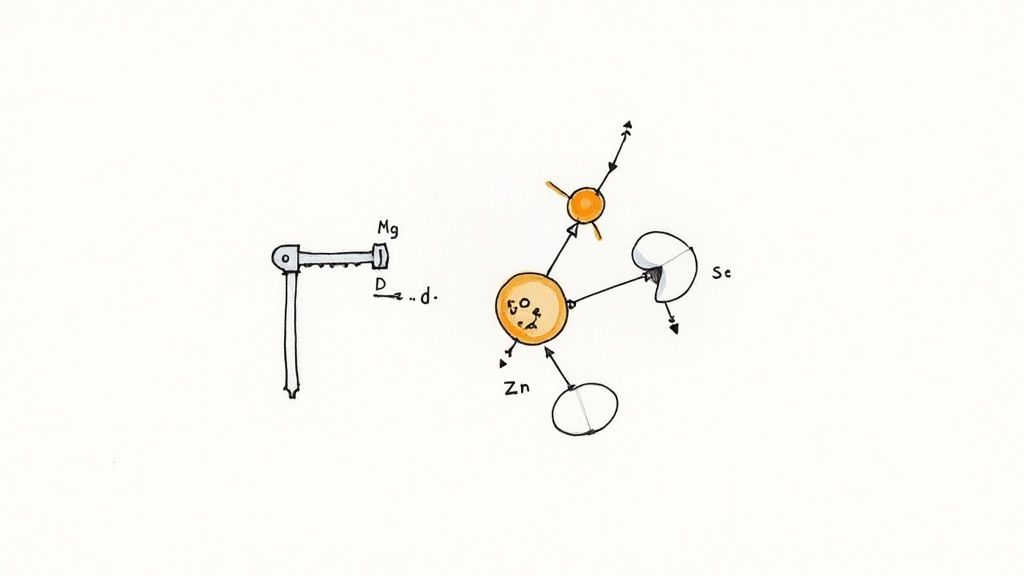
Let's explore four of the most important minerals for female hormone balance: Magnesium, Zinc, Selenium, and Iodine. We'll give you practical steps to make sure you’re getting enough of these vital nutrients.
Magnesium: The Master Mineral
Magnesium is involved in over 300 different processes in the body, which is why it’s often called 'the master mineral'. Its role in hormonal health is just as impressive, helping to regulate your stress response by calming the nervous system and supporting the production of key hormones like progesterone, oestrogen, and testosterone.
Think of magnesium as the key that unlocks Vitamin D’s potential. Without enough magnesium, your body can’t convert Vitamin D into its active, usable form. This means even if you're taking a Vitamin D supplement, you might not be reaping all the rewards if your magnesium levels are running low.
Actionable Steps:
- Add a handful of dark leafy greens like spinach to at least one meal a day.
- Snack on magnesium-rich nuts and seeds like almonds, cashews, and pumpkin seeds.
- Enjoy a few squares of dark chocolate (70% cocoa or higher) as a treat.
- Consider an evening Epsom salt bath a few times a week, as magnesium can be absorbed through the skin.
Zinc: The Ovulation Ally
Zinc is an absolute powerhouse for reproductive health and is non-negotiable for healthy ovulation. It plays a central part in producing and regulating follicle-stimulating hormone (FSH), the chemical messenger that tells your ovaries to release an egg each month.
Actionable Steps:
- Incorporate zinc-rich protein sources like beef, lamb, or shellfish into your meals.
- For plant-based options, regularly eat chickpeas, lentils, and beans.
- Sprinkle pumpkin or hemp seeds on your salads, yoghurt, or porridge.
Keeping your zinc levels topped up is a cornerstone of any plan focused on vitamins for female hormone balance, ensuring the whole reproductive signalling system runs like clockwork.
Selenium and Iodine: The Thyroid Duo
Your thyroid gland needs a steady supply of both selenium and iodine to do its job properly. Iodine is a core building block of thyroid hormones, while selenium helps convert these hormones into their active forms. When your thyroid is out of balance, it can set off a domino effect across your entire endocrine system.
Actionable Steps to Support this Duo:
- For Iodine: Add sea vegetables like kelp or nori to soups and salads, or choose fish like cod and dairy products.
- For Selenium: Eat just one or two Brazil nuts a day to meet your daily needs. Other sources include tuna, sardines, and eggs.
These minerals often work behind the scenes, but their impact is huge. By making sure your diet is rich in these unsung heroes, you’re creating the perfect environment for your vitamins to work their magic. For those who want to dive deeper, our article on the benefits of trace minerals offers a closer look at why they’re so important for our overall health.
Building Your Personal Hormone Support Plan
Knowing which vitamins support your hormones is one thing, but turning that knowledge into a real, sustainable plan is where the magic happens. It all starts with a simple self-assessment to figure out what your body is asking for right now.

Your life stage and symptoms are the best clues you have. Are you wrestling with the monthly rollercoaster of PMS, or are you navigating the hot flushes and fatigue of perimenopause? Pinpointing these patterns helps you sharpen your nutritional strategy, moving past generic advice to find what genuinely works for you.
A Food-First Framework
The most powerful and lasting strategy always begins on your plate. Build meals that are naturally packed with the vitamins for female hormone balance your body needs by creating a "hormone-happy" plate.
Here's a simple, actionable framework:
- Half Your Plate: Load it up with non-starchy veggies like broccoli, spinach, and bell peppers. They're bursting with fibre and essential B vitamins.
- A Quarter of Your Plate: Add a solid source of high-quality protein—think salmon, chicken, or lentils—to keep your blood sugar stable and cravings at bay.
- Another Quarter: Bring in some complex carbohydrates like sweet potatoes or quinoa for slow-release, sustained energy.
- A Dash of Healthy Fats: Finish with a sprinkle of avocado, nuts, or seeds. These are the crucial building blocks for hormone production.
Beyond just vitamins, certain foods are superstars for hormonal health. You can learn more about effective hormone-balancing foods for women to really expand your culinary toolkit. This food-first approach ensures you’re getting a symphony of nutrients that all work together.
Identifying Your Unique Needs
Let your main symptoms guide you. If low energy and mood swings are your biggest struggle, making B vitamins and magnesium-rich foods a priority is a brilliant place to start. For those experiencing menopausal symptoms, ensuring you get enough vitamin D and E can be a game-changer.
Your symptoms aren't random; they are signals from your body. Listening to them allows you to create a targeted nutritional plan that addresses your specific needs, whether it's managing PMS, navigating perimenopause, or simply seeking more stable energy.
How to Read a Supplement Label
When diet alone isn't quite cutting it, a high-quality supplement can be a fantastic way to fill in the gaps. Knowing what to look for on the label is key to making a smart choice.
Use this checklist when choosing a supplement:
- Check for Active Forms: Look for bioavailable forms of nutrients that your body can actually absorb and use easily, like methylcobalamin for B12 or magnesium glycinate.
- Scan for Fillers and Additives: A good supplement shouldn't be loaded with unnecessary junk. Avoid products with artificial colours, sugars, or a long list of fillers. The ingredient list should be clean and simple.
- Look for Third-Party Testing: A seal from an independent organisation is a great sign. It means the product has been tested for purity and potency, so you know what's on the label is actually what's in the bottle.
By combining a little self-awareness with a food-first mindset and smart supplementation, you can build a powerful, personalised plan. For more in-depth advice, check out our guide on choosing the right supplement for hormonal balance. It's all about empowering yourself to create a sustainable strategy for long-term wellness.
Going Beyond the Basics
Once you've got a good handle on the essential vitamins and minerals, you can start exploring other powerful tools for your hormonal health. Think of these as next-level strategies to build upon your core routine. They offer targeted support for major hormonal disruptors like inflammation and stress.
This shift towards more natural solutions is really taking off. In the UK, the market for supplements geared towards female hormone balance hit an estimated £700 million in 2023, and it's growing by 7-9% each year. You can read more about this growing trend on FutureMarketInsights.com.
The Power of Omega-3 Fatty Acids
Omega-3s are healthy fats that are brilliant for calming low-grade inflammation. Picture your hormonal communication network as a set of crystal-clear phone lines. Inflammation is like static on the line, scrambling the messages and making it tough for your hormones to do their jobs properly.
Actionable Steps:
- Aim for two or three servings of oily fish like salmon, mackerel, or sardines each week.
- For plant-based sources, add a tablespoon of ground flaxseeds or chia seeds to your daily smoothie or porridge.
- Snack on a small handful of walnuts.
Adaptogens for Stress Resilience
Stress is one of the biggest culprits when it comes to hormonal chaos. When you're constantly frazzled, your body churns out the stress hormone cortisol, which can seriously mess with the production of your main sex hormones. Adaptogens are a special class of herbs that help your body become more resilient to stress.
Think of adaptogens as a thermostat for your stress response. Instead of letting stress crank your system up to the extreme, they help your body adjust and stay in a more balanced state. This stops cortisol from hijacking your hormonal harmony.
One of the most well-known adaptogens is Ashwagandha. It helps to soothe the nervous system and supports your adrenal glands.
Shilajit for Cellular Energy
A lesser-known but incredibly powerful addition to your toolkit is Shilajit. This natural resin is loaded with fulvic acid and more than 85 trace minerals that support your overall health. Its real secret weapon is how it helps your body absorb and use other nutrients more effectively.
Shilajit gets to work by boosting energy production right inside your cells. When your cells have the fuel they need to work at their best, every single system in your body benefits, including your endocrine system. By improving how you absorb nutrients and produce energy, Shilajit can make the core vitamins and minerals you’re already taking even more effective.
Common Questions About Vitamins and Hormones
Starting any new health journey always brings up a few questions. To help you feel confident and prepared, here are some straightforward answers to the queries we hear most often about using vitamins for female hormone balance.
How Long Until I Notice a Difference From Supplements?
This is a big one, and the honest answer is: be patient. Your body needs time to rebuild its nutrient stores. While some people feel little shifts in energy or mood within a few weeks, it generally takes around three months of consistent use to see more significant changes in things like PMS or the regularity of your cycle.
Think of it like tending to a neglected houseplant. The first few waterings just rehydrate the soil. It’s only after that consistent care that you start to see new leaves and real growth. Your body is much the same—it first has to top up its reserves before it can get to work regulating complex hormonal pathways.
Can I Get Everything I Need From My Diet?
A food-first approach is always the best place to start. A diet packed with colourful vegetables, quality protein, and healthy fats gives your body a huge range of nutrients that all work together. But, let's be realistic, modern life can make it tricky to get everything you need from food alone.
A few things can create a need for a top-up:
- Soil Depletion: Modern farming has, over time, left our soil with fewer essential minerals, like magnesium, than it had generations ago.
- High Stress Levels: When you're constantly stressed, your body burns through key nutrients like B vitamins and magnesium at a much faster rate.
- Digestive Issues: If your gut health isn’t quite right, you might not be properly absorbing all the goodness from the food you eat.
So, while your diet is your number one tool, a well-chosen supplement can be a brilliant insurance policy to fill in any gaps.
Are There Any Risks I Should Be Aware Of?
Vitamins are natural, but that doesn’t mean they’re completely risk-free, especially in high doses. With supplements, more isn't always better. For example, taking way too much of the fat-soluble vitamins (A, D, E, and K) can cause them to build up in your body and become toxic over time.
It’s also really important to think about any potential interactions with medications you might be taking. Some supplements, for instance, can interfere with blood thinners or hormone therapies.
A good rule of thumb is to always stick to the recommended dose on the label, unless your doctor has told you otherwise. This way, you get all the benefits without any of the risks.
A sensible way to start is by introducing one new supplement at a time. This lets you see how your body gets on with it and makes it easy to spot any issues without confusion.
When Should I See a Doctor?
While nutrition is an incredibly powerful tool, it’s vital to know when it’s time to get professional medical advice. There's a limit to self-managing your health, and a professional can give you a proper diagnosis and check for any underlying conditions.
You should definitely book an appointment with your GP or a qualified practitioner if:
- Your symptoms are severe and are getting in the way of your daily life.
- You’ve been trying nutritional changes for several months but haven't seen any improvement.
- You think you might have an underlying condition like PCOS, endometriosis, or a thyroid issue.
- You are pregnant, breastfeeding, or have another medical condition.
A professional can run specific tests to check your hormone and nutrient levels, which gives you a clear picture of what's going on and helps create a much more targeted and effective plan.
Ready to support your body's natural balance and energy? Oji Shilajit combines over 85 trace minerals with powerful adaptogens to help restore the essential nutrients your body is craving. Discover a simpler way to feel your best at https://myoji.co.uk.


